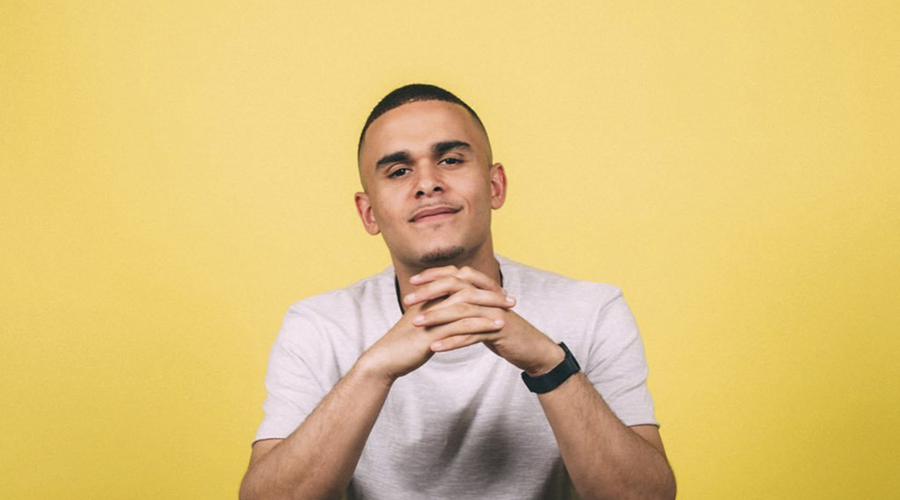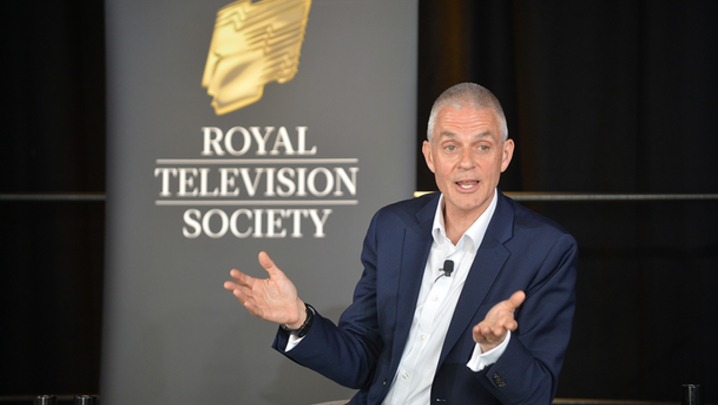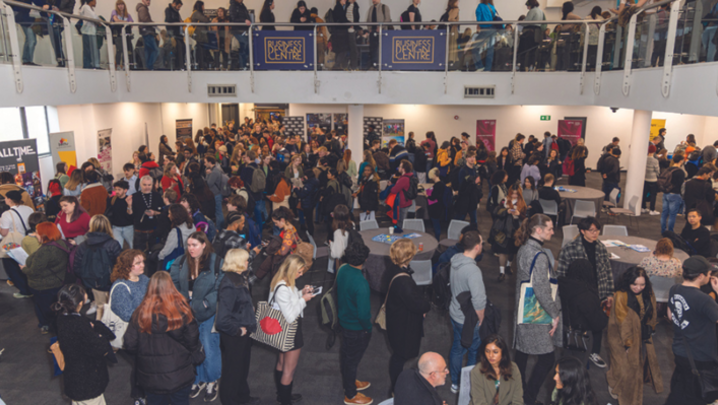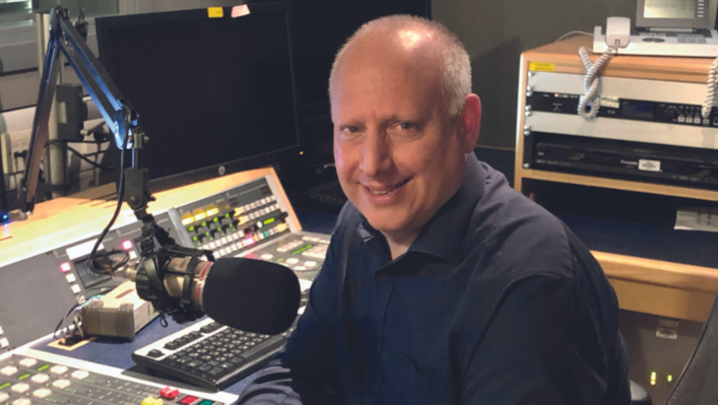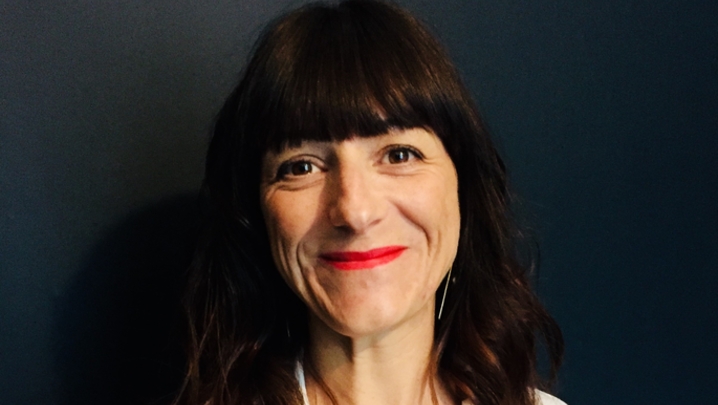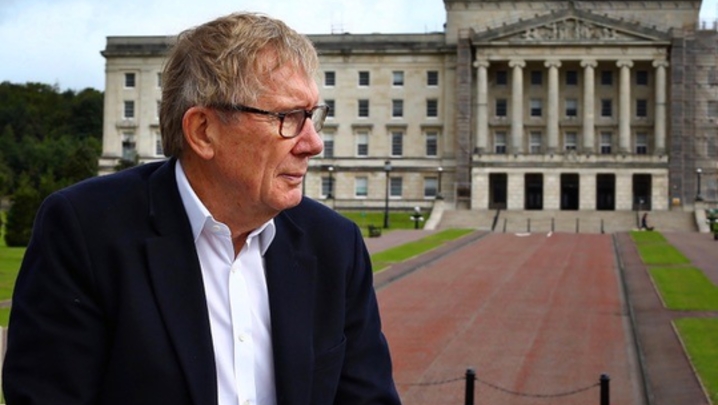Pippa Shawley meets Ashley John-Baptiste, who defied his background to become a successful BBC reporter
"Working on Grenfell was… oh gosh, how do I even articulate that?” asks Ashley John-Baptiste, the 28-year-old reporter who led the coverage of the tower block fire and its devastating aftermath for BBC Two’s Victoria Derbyshire programme last summer. “It was hard to switch off,” he admits.
Originally dispatched to west London to find residents who would speak to Victoria Derbyshire live on the programme, he revisited the area multiple times, meeting survivors and building a rapport with the community.
His reports helped earn him a nomination for the Young Talent of the Year award at this year’s RTS Television Journalism Awards (the award went to his BBC colleague Nawal al-Maghafi).
“I’m proud of the fact that our programme gave a voice to these people, and we gave them dignity. We allowed the country to see just what they were going through and how devastating it was and still is,” he says.
That John-Baptiste managed to embed himself in the community was a feat in itself. Many of the residents of Grenfell Tower were reluctant to speak to the media. Channel 4 News’s Jon Snow was famously berated by a survivor who shouted: “You should have come here before.… This is not a photo opportunity – this is real life.”
John-Baptiste puts a lot of his success down to empathy, but also admits that his background probably helped people open up to him.
He was placed in care at the age of two and spent the next 16 years moving between foster carers and children’s homes in south London.
Despite being suspended from school eight times between the ages of 11 and 15, he won a place to read history at Cambridge. It wasn’t until he got to university that he began to engage with news and current affairs. “I’m almost quite ashamed to say that,” he confesses.
Even as a Cambridge undergraduate, John-Baptiste never considered getting involved in student media, let alone a career in the industry.
As law firms courted his student peers, taking them to dinner and offering tours of their offices, he thought, “Oh, I’m going to have to go down those conventional career routes.”
His journey into the media was anything but conventional. In 2011, his friends dared him, as a lifelong music fan, to audition for The X Factor. Days after graduating, he found himself at London’s O2 Arena singing in front of celebrity judges Tulisa, Kelly Rowland, Gary Barlow and Louis Walsh. At boot camp, the budding musician was put into boyband The Risk and they got through to the live rounds.
“I remember thinking, ‘What on earth is going on? What is my life?’ A lot of my mates were having summer holidays and then they were getting ready for law internships [and] teaching placements, but I was doing live telly.”
The talent show was at its height in 2011. Twenty million people had tuned in to watch Matt Cardle beat One Direction the previous year.
John-Baptiste’s initial experience was “great” but, three weeks in, the fledgling pop star had an “internal crisis”. “I remember thinking, ‘We are on the precipice of being famous… of having what many young people want: [a] bit of fame, popularity, performing.… I haven’t slogged through Cambridge for three years as a care leaver to throw that away.’”
So he did the unthinkable and quit. It was the toughest decision of his life. He still feels “a bit guilty” about leaving his bandmates.
He went back to the council flat he was given when he left care. It was a stark contrast to the weeks he’d spent living it up in the X Factor house and hanging out with the likes of Bruno Mars.
“I felt very isolated,” he recalls. “I didn’t have a family… so I didn’t know what to do.”
To make things worse, he found himself being hounded by the tabloid press. “There were a whole load of stories at that time about my faith and my background that were nonsense,” he says. “I quit because I just didn’t feel like it was the path that would fulfil my intellectual potential.”
He picked himself up and went to stay with friends in Cambridge. During this period, he gave an interview to the Times to set the record straight.
The piece caught the eye of a producer at BBC Three, who asked if he was interested in making a documentary about people leaving the care system. He was initially reluctant to return to the spotlight, but agreed because he needed the money “and there was an intellectual curiosity”.
[Grenfell shows why] We need newsrooms that are eclectic and diverse, and of all social backgrounds
John-Baptiste spent four months filming Care Home Kids: Looking for Love. “I just loved the process,” he says. “I loved talking to people. I loved asking questions that you just wouldn’t ask in normal life because you don’t have the opportunity.”
The documentary’s commissioner, Fiona Campbell, encouraged him to apply for a Creative Access internship with the BBC News Channel.
He joined the Victoria Derbyshire programme at its launch three years ago as an intern. Eventually, he was offered a staff job. It was a perfect fit for the young journalist: “I feel like, on our programme, there’s a real ethos when it comes to empowering young reporters, getting stories from underserved parts of the country and unrepresented communities, so that suits me well.”
Funny, talkative and humble, John-Baptiste uses his position to inspire other care leavers to strive for success. He also champions more diversity in the country’s newsrooms.
There is a “strong will” at the BBC to enact this change, he believes, but he does occasionally feel like an imposter.
“When you’re a minority, it’s very easy to fall into that space of ‘Am I good enough? Should I really be here?’” he muses.
The solution, he has realised, is to think of the bigger picture: “What drives me is knowing that I represent people in care, I represent disadvantaged people.
“I want to create a new normal for foster children and for care leavers. That really galvanises me to do well and work hard.”
His natural charisma means that he is easy to talk to, while his willingness to discuss his own obstacles means that people such as the survivors of Grenfell Tower are more willing to open up to him.
“We need newsrooms that are eclectic and diverse, and of all social backgrounds, because then, when there’s a big story [such as Grenfell], you know that you’ve got someone who represents that community.”
More outreach is necessary, he believes. He regularly talks to students from underperforming schools, but says more needs to be done to involve communities that aren’t engaged with the media.
Supporting local journalism is vital to this, but he thinks that broadcasters should do more to scout out talented young vloggers and bloggers.
Today, John-Baptiste is still friends with many of the people he grew up with. Their stories help inform his reporting.
Last year, he married Joanna, a teacher from Surrey. “She has a really solid, loving family and that is worlds apart from what I knew as a kid,” he says, adding: “That’s good for me, especially in the work that I do, going to Grenfell, covering these really emotionally taxing stories.”
Does he ever envy Little Mix, the eventual winners of the 2011 X Factor, and their four platinum-selling albums? He admits that watching them perform alongside Coldplay, one of his favourite bands, during the X Factor finale was tough.
“I was like, ‘Oh my gosh, what the hell have I done? Potentially, that could have been us’.… But I’m seeing the fruit of the decisions I’ve made,” he smiles.

